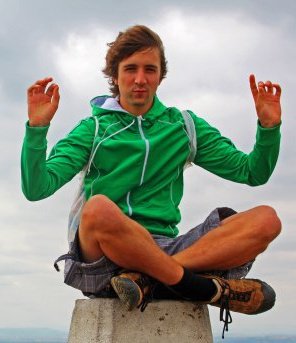
Overblown, melodramatic, absurd. All of these words can be aptly applied to Black Swan, and I mean them all as compliments.
Darren Aronofsky is a director obsessed with obsession. In ‘Pi’ he looked at an obsession with numbers, in ‘Requiem for a Dream’ the obsession was drugs, in ‘The Fountain’ it was the denial of death. His last work, ‘The Wrester’ was about an obsession with one’s work and body and Black Swan serves as an intentional and interesting companion piece. It is a stylish study of a dancer’s obsession to produce perfection and to ultimately become perfect. This is, of course, an impossible task, and her unrelenting hard work to achieve this goal leads her to some very dark areas of the psyche.
I am no dance expert, and I must admit the one ballet I have seen hardly set my soul alight, but thanks to the expert direction and editing in this film, I understood the power, emotion and physical precision that must go into creating a ballet. Aronofsky made the wise decision to make heavy use of Tchaikovsky’s original score which, when mixed with the stylish lighting and intoxicating melodrama, comes closer to catching the frenzy and energy of theatre than any other film I have seen.
Natalie Portman quite rightfully won a Golden Globe for her passionate and incredibly physical performance as Nina; she is a woman who is consumed with her work, largely thanks to her creepy, possessive mother who seems determined to live out her own dance fantasy through her daughter. She obsessively paints portraits of her and tucks her into her bed in a bedroom that can’t have changed since Nina was 12. Nina has led a sheltered life which makes it hard for her to channel the emotional core needed to take on the difficult role of the Black Swan, a dark twisted character key to the Ballet.
Nina is advised by the choreographer, played brilliantly by Vincent Cassel, to lose herself in order to become the Black Swan on stage, and this leads Nina into a series of sexual and violent events. Aronofsky mixes fantasy with horror in these sequences to ensure that there is never a dull moment. Eventually the fantasy elements of the film overtake the realism; the ambiguity of this is played on to such an extent that the film literally becomes wild. It looses all restraint and only a director as brave and talented as Aronofsky could handle it. What could have been a potential disaster is a near masterpiece.
Verdict
Scary, absorbing and consuming, the film affects the audience almost to the extent that the Black Swan affects Nina. See it at the cinema for a truly theatrical experience.
****1/2



